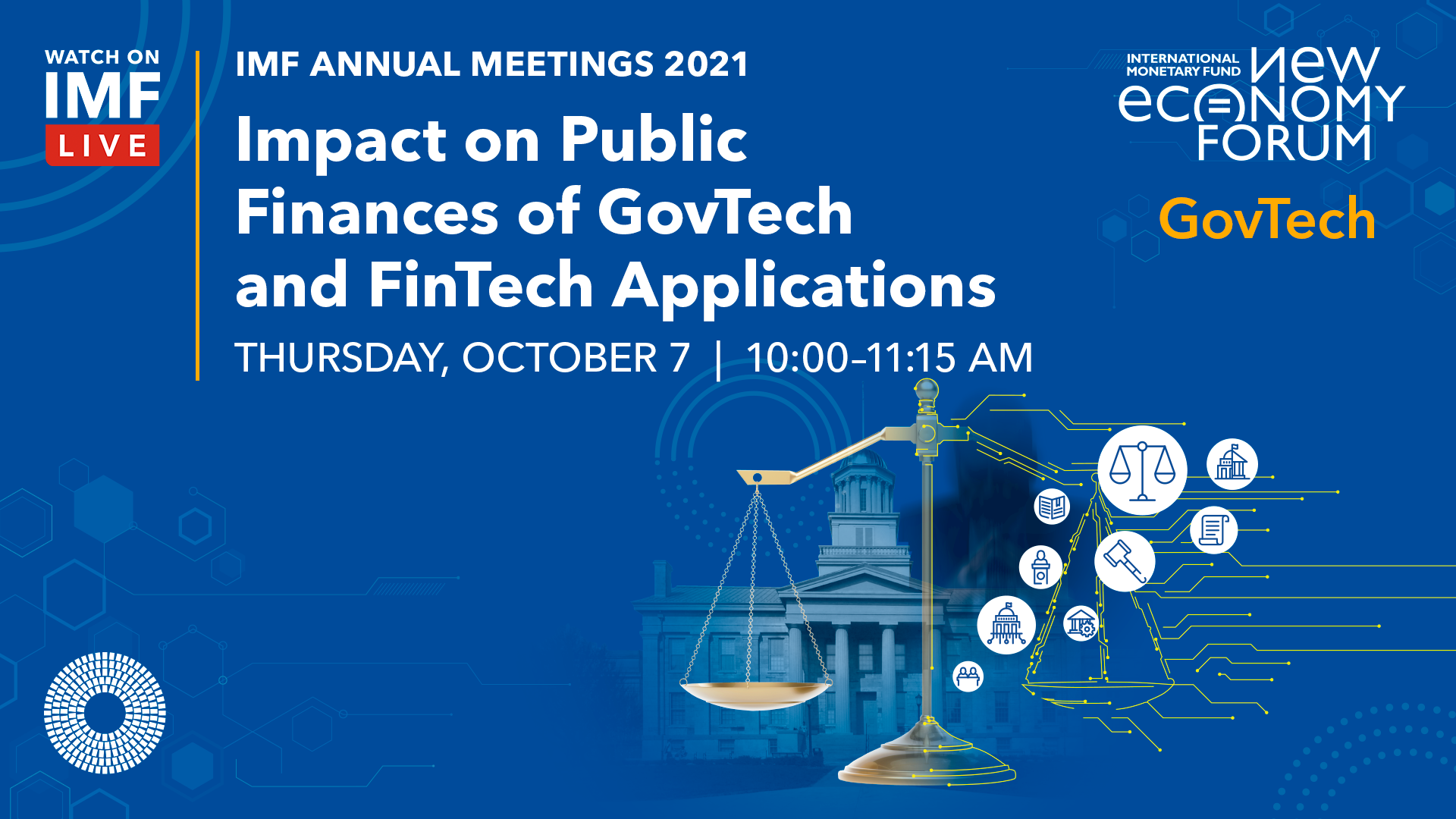Thursday, Oct 7, 2021 | 11:00 AM - 12:15 PM
Location: Media Studio - Blue Level, HQ1-B-640

How do digital technologies and especially fintech affect systems and processes in public financial management and revenue administrations? What new tax and expenditure policy options do these technologies create? And what are the risks? This panel discusses these issues and take a look into the future.
 |
Opening Remarks
|
 |
Speaker |
 |
Moderator |
Fernando Barraza |
 |
Dharitri Panda |
Ms. Dharitri Panda, an officer of Indian Civil Accounts Service (1987 batch) is currently working as the Additional Controller General of Accounts of India and is heading the Public Financial Management Division. During her career spanning 35 years in Govt. of India she has handled various important assignments in Finance, Power, Health, Defence, Home and Industry Sectors. She has worked in various capacities of being Financial Adviser in Health and Defence and also was part of regulatory reforms in power sector in her capacity as Joint Director Tariffs in Odisha Electricity Regulatory Commission. She was also responsible for vaccine procurements in her capacity as Joint Secretary in Ministry of Health and Family Welfare. Presently, in her capacity as Addl. CGA, she is responsible for overseeing the PFMS Division, a flagship GIFMIS system of Govt of India which manages the Treasury, payments, receipts and accounting functions and social transfers and monitoring of utilisation of government funds.
She holds a Double Masters in Sociology (JNU) and Public Policy (TERI University). Her hobbies include Singing and Yoga. She has widely travelled across the world.
 |
Cina Lawson |
Cina Lawson is Minister of Digital Economy and Digital Transformation of Togo. Drawing from over 17 years of experience and expertise in telecommunications policy and regulation, she is leading Togo through a profound transition to an inclusive digital economy. Lawson began her career at the World Bank in Washington, D.C. assisting governments in developing countries to execute regulatory reforms. She then worked for Alcatel-Lucent in Paris before joining Orange Group in New York City as Manager of Corporate Strategy and Business Development.
As a minister, she has boosted private sector participation in the Togolese telecoms sector, enacted new legal and regulatory frameworks and privatised the historic operator. Lawson’s transformative initiatives such as strengthening data protection and cybersecurity; implementing universal digital ID; digitising public services and government-to-people payments; as well as accelerating the deployment of high-speed Internet nationwide, have contributed to building a solid foundation for the modernisation of Togo’s economy.
She is a fervent advocate of innovation-driven solutions to Africa’s developmental challenges. Lawson’s work has gained recognition from around the world, including from the World Economic Forum, les Napoleons and Forbes. In 2019, she received the Harvard Alumni Public Service Award becoming the first African female political figure to do so. Lawson is a graduate of Sciences Po Paris and the Kennedy School of Government at Harvard University.
Mr. Henri Lindeberg |
GovTech is about how technologies change public administration and government policies. The panelists discussed how digital technologies, especially fintech, can affect taxation, revenue administration, public financial management, and expenditure policy.
Key Points:
Quotes:
“Given how fast governments are digitalizing, it is important to distinguish between pace and haste. It is necessary to do it right.” Vitor Gaspar
“Information is the lifeblood of any tax administration and digitalization is essentially an information revolution.” Ruud de Mooij
Contributor: Bo Zhao